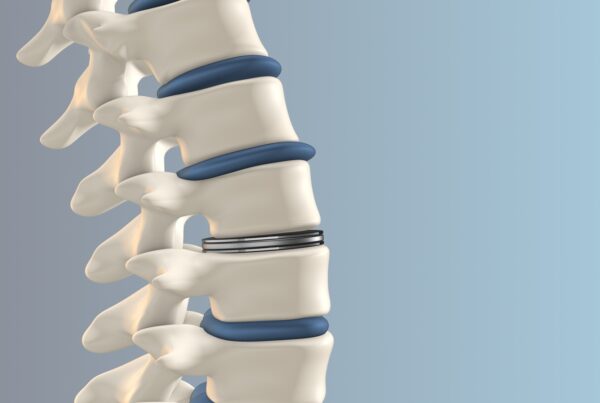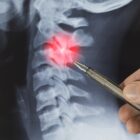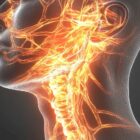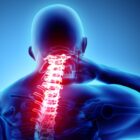Everyone experiences pinched nerves to some degree in their lifetime. The human anatomy is such that it’s almost unavoidable. Most of the time they’ll resolve on their own, but the healing process can take weeks to months and can require treatment by a specialist and medication. Sometimes surgery is necessary.
How Long Is Too Long?
How long do pinched nerves last? Can they lead to more serious issues? At what point should you seek medical advice and intervention for a pinched nerve? While there is no definitive answer, ask yourself these questions:
How Long Have You Had the Pain?
If you experience pain or discomfort from a pinched nerve for more than three days and you’re not finding any relief from over-the-counter non-steroidal anti-inflammatory drugs (NSAIDs) or other treatments, this is a red flag. Prolonged pain from an impingement is an indication that you may need the help of a doctor to determine the root of your pinched nerve discomfort and check for any other potential problems.
Is It a Recurring Problem?
If you suffer from the pain or discomfort of a pinched nerve on a fairly regular basis — and especially the same one — it is time to see a doctor. Problems such as herniated discs can lead to chronic (sometimes intermittent) flare-ups that will likely worsen over time.
How Debilitating Is It?
If you struggle to move or have trouble going about your normal daily activities due to the pain, weakness or numbness from a pinched nerve, see a doctor immediately. In some cases, the longer you wait, the more likely it is for permanent nerve damage to occur.
It's time to get back
to doing what you love.
What Are the Treatment Options for a Pinched Nerve?
If these questions indicate you need to see a doctor for your pinched nerve, you’re probably wondering what can be done to obtain relief. Luckily, there is a wide variety of treatments available, from non-invasive to moderately invasive. Depending on the location and severity of your pinched nerve, your neurologist will be able to give you recommendations on what course of action to follow.
Medication
Drug intervention is usually one of the first lines of defense a doctor will use against nerve impingements. In many cases, the swelling and inflammation created by the irritation can amplify symptoms. If those two components are calmed, then the nerve and surrounding tissues can begin to repair themselves. Drugs used to treat pinched nerves can vary from over-the-counter medications to prescription narcotics and steroids. Depending on the severity of your impingement, your doctor will make recommendations or prescribe the necessary medications.
- Injectable and Oral Steroids – Steroids work by effectively dampening the immune system so that white blood cells and other immune components don’t keep coursing to the site of the injury. While this is a very useful feature in wounds, closed injuries do not typically require the level of immune response the body produces. As such, when steroids are used, the body doesn’t produce the same level of inflammation-causing components, reducing swelling in the affected area(s). Your doctor may give you an injection of a corticosteroid near the impinged nerve, or prescribe oral steroids such as prednisone for a more systemic effect.
- Non-Steroidal Anti-Inflammatory Drugs or “NSAIDs” – One of the more popular options, NSAIDs are widely used for a number of applications, from fever reduction to pain relief. These drugs can be highly effective in situations where both inflammation and pain need to be addressed. There are many over-the-counter NSAIDs readily available; these include ibuprofen, naproxen, and aspirin. Other NSAIDs are available only by prescription.
- Narcotics – Highly effective against pain, short-term narcotics may be prescribed to help break the pain cycle that can sometimes occur. The downside to narcotics is that they have a high rate of addiction and can also cause constipation and nausea. They also do not possess anti-inflammatory properties, making them less useful in cases where much of the nerve pain is being caused by inflammation. In instances of extreme pain and swelling, they may be combined with an NSAID to address both the inflammation and discomfort.
Physical Therapy
Your doctor may recommend a course of physical therapy to help strengthen muscles and prevent re-injury of the compromised nerve(s). This is especially useful in cases where there is no underlying structural cause for the pinched nerve.
Surgery
If all else fails, there are several excellent surgical options available for impingements. These should always be performed by a well-seasoned neurosurgeon with a specialization in the procedure you are having performed. Neurosurgery has come light years from what it once was — whereas a discectomy 20 years ago may have landed you in the hospital for weeks and then unable to do much for months, new techniques now allow for very short recoveries and little-to-no expectation for follow-up procedures. Surgeries commonly performed for pinched nerves include posterior cervical foraminotomy and microdiscectomy, anterior disc surgery and minimally invasive lumbar fusion, just to name a few.
Although you may suspect an impingement is to blame for your symptoms, it’s always a good idea to seek a diagnosis and medical treatment for any unusual pain or discomfort. Your neurosurgeon can make an accurate diagnosis and recommend treatment so you can return to the things you love.
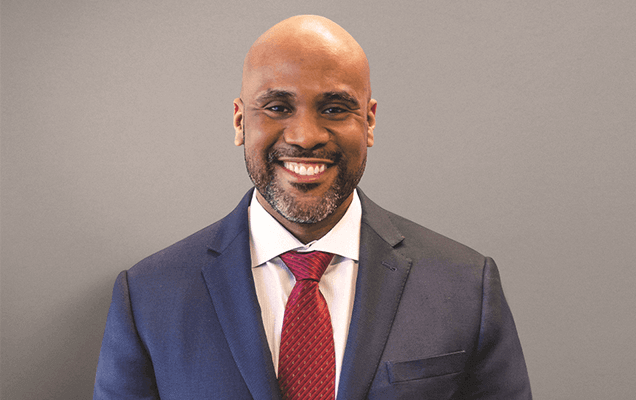
About Dr. Gaetan Moise
Dr. Gaetan Moise is an accomplished neurosurgeon in North Jersey and is a proud member of Neurosurgeons of New Jersey, practicing out of their Ridgewood office conveniently located on East Ridgewood Avenue. His compassionate evidence-based, results-driven approach is guided by his desire to help patients achieve happy, pain-free lives through non-surgical and appropriate surgical solutions. Dr. Moise’s techniques are influenced by the advancements in minimally invasive surgery technology as well as advances in the understanding of the intricacies of the nervous system, brain, and spinal cord. Dr. Moise is a member of The Congress of Neurological Surgeons and the American Association of Neurological Surgeons. He is accepting new patients.





